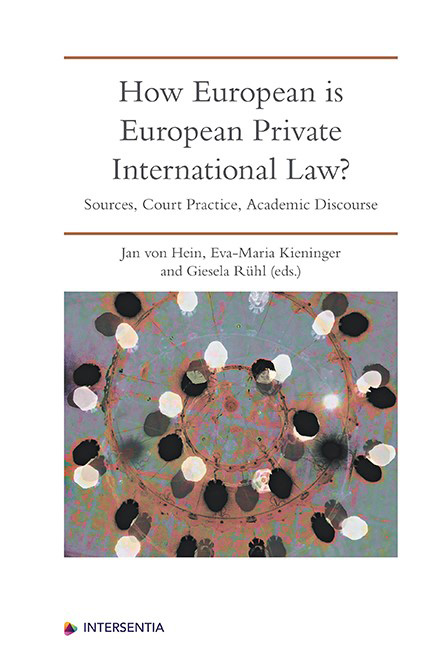When Should EU Private International Law Require that Foreign Law be Applied?
Published online by Cambridge University Press: 22 December 2020
Summary
INTRODUCTION
In Chapter 5, Marta Requejo Isidro provided a rich and in-depth look at how EU Private International Law should be applied by courts in the European Union when it concerns applicable law rules. This chapter follows with a brief comment on the same topic, focusing on the core of EU Private International Law that applies in all EU Member States apart from Denmark and not on enhanced cooperation or international provisions that bind only some EU Member States (e.g. the Hague Protocol on Maintenance). In enhanced cooperation and non-core areas of EU Private International Law, if the States concerned regard the application of foreign law as being sufficiently important to be funded directly or indirectly by them then they can do so. This could be done by the States individually, or perhaps collectively by amendments to these instruments, or by enhanced cooperation to an instrument on proof of foreign law applicable only to these non-core instruments, so that the real State/EU interests in applying foreign law ex officio can be teased out.
THE UNIVERSAL APPLICATION OF EU PRIVATE INTERNATIONAL LAW INSTRUMENTS ON APPLICABLE LAW
One reason to be very cautious about insisting on ex officio application of foreign law by judges in courts in the European Union is that they will be obliged to apply the laws of non-EU States when the EU law instruments on applicable law lead them to conclude that the law of a country not in the European Union is the applicable law for that dispute or part of the dispute. The result is that even if the EU legislature and the Member States were to significantly improve the European Judicial Network so that it could give reliable, albeit basic, information on the laws of the EU Member States, this would not provide any help for judges when the applicable law is a non-EU law.
THE HIGH COSTS OF MAKING AND MAINTAINING RELIABLE PUBLIC DATABASES
It may be assumed that a large proportion of cases decided in the European Union where a foreign law is applicable would concern the law of an EU Member State but data on this issue is lacking.
- Type
- Chapter
- Information
- How European is European Private International LawSources, Court Practice, Academic Discourse, pp. 177 - 184Publisher: IntersentiaPrint publication year: 2019

